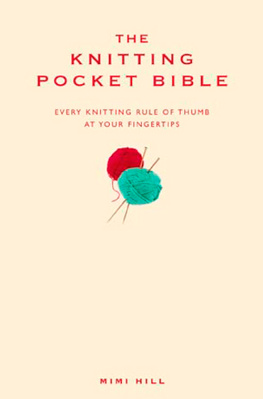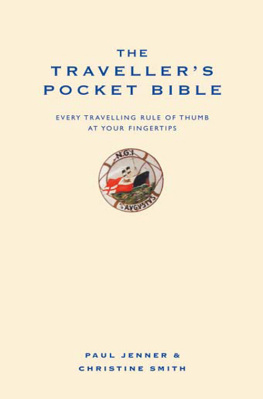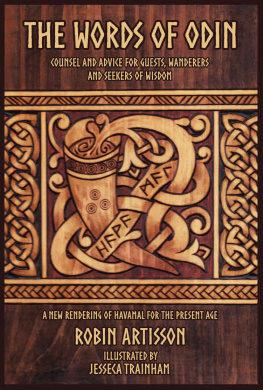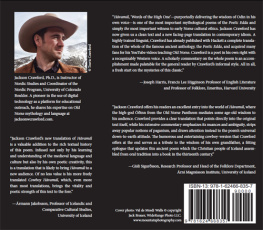POCKET
HAVAMAL TM

BENJAMIN THORPE TRANSLATION
Edited & Designed by: Carrie Overton
Pocket Havamal TM
is a trademark of Carrie Overton
2nd Edition 2015 Carrie Overton
ISBN: 978-1-937571-26-9
First edition originally published 2013
This book is based on works in the public domain however the content has been edited and these changes are subject to copyright.
All rights reserved. This book or any portion thereof may not be reproduced or used in any manner whatsoever without the express written permission of the publisher except for the use of brief quotations in a book review.
We would like give a hearty Hail to folk like you who made the Pocket Havamal a best seller and thank you for purchasing this revised 2nd edition.
We hope you enjoy the changes we have made.
Carrie Overton
Huginnn & Muninn Publishing
For information on Asatru, Odinism and Ger
manic Heathenry please visit our website:
huginnandmuninn.net
Hail the Aesir!
Hail the Vanir!
Hail the Folk!
CONTENTS

HAVAMAL

. All door-ways, before going forward, should be looked to; for difficult it is to know where foes may sit within a dwelling.
. Givers, hail! A guest is come in: where shall he sit? In much haste is he, who on the ways has to try his luck.
. Fire is needful to him who is come in, and whose knees are frozen; food and raiment a man requires, wheoer the fell has travelled.
. Water to him is needful who for refection comes, a towel and hospitable invitation, a good reception; if he can get it, discourse and answer.
. Wit is needful to him who travels far: at home all is easy. A laughing-stock is he who nothing knows, and with the instructed sits.
. Of his understanding no one should be proud, but rather in conduct cautious. When the prudent and taciturn come to a dwelling, harm seldom befalls the cautious; for a firmer friend no man ever gets than great discernment.
. A wary guest, who to refection comes, keeps a cautious silence, with his ears listens, and with his eyes observes: so explores every prudent man.
. He is happy, who for himself obtains fame and kind words: less sure is that which a man must have in anothers breast.
. He is happy, who in himself possesses fame and wit while living; for bad counsels have oft been received from anothers heart.
. A better burden no man bears on the road than much good sense; that is thought better than riches in a strange place; such is the recourse of the indigent.
. A worse provision on the way he cannot carry than too much beer-bibbing; so good is not, as it is said, beer for the sons of men.
. A worse provision no man can take from table than too much beer-bibbing: for the more he drinks the less control he has of his own mind.
. Oblivions heron tis called that over drink hovers; he steals the minds of men. With this birds pinions I was fettered in Gunnlods dwelling.
. Drunk I was, I was over-drunk, at that cunning Fialars. Its the best drunkenness, when everyone after it regains his reason.
. Taciturn and prudent, and in war daring, should a kings children be; joyous and generous everyone should be until his hour of death.
. A cowardly man thinks he will ever live, if warfare he avoids; but old age will give him no peace, though spears may spare him.
. A fool gapes when to a house he comes, to himself mutters or is silent; but all at once, if he gets drink, then is the mans mind displayed.
. He alone knows who wanders wide, and has much experienced, by what disposition each man is ruled, who common sense possesses.
. Let a man hold the cup, yet of the mead drink moderately, speak sensibly or be silent. As of a fault no man will admonish thee, if thou goest to bed early.
. A greedy man, if he be not moderate, eats to his mortal sorrow. Oftentimes his belly draws laughter on a silly man, who among the prudent comes.
. Cattle know when to go home, and then from grazing cease; but a foolish man never knows the measure of his own stomach.
. A miserable man, and ill-conditioned, sneers at everything: one thing he knows not, which he ought to know, that he is not free from faults.
. A foolish man is all night awake, pondering over everything; he then grows tired; and when morning comes, all is lament as before.
. A foolish man thinks all who on him smile to be his friends; he feels it not, although they speak ill of him, when he sits among the clever.
. A foolish man thinks all who speak him fair to be his friends; but he will find, if into court he comes, that he has few advocates.
. A foolish man thinks he knows everything if placed in unexpected difficulty; but he knows not what to answer, if to the test he is put.
. A foolish man, who among people comes, had best be silent; for no one knows that he knows nothing, unless he talks too much. He who previously knew nothing will still know nothing, talk he ever so much.
. He thinks himself wise, who can ask questions and converse also; conceal his ignorance no one can, because it circulates among men.
. He utters too many futile words who is never silent; a garrulous tongue, if it be not checked, sings often to its own harm.
. For a gazing-stock no man shall have another, although he come a stranger to his house. Many a one thinks himself wise, if he is not questioned, and can sit in a dry habit.
. Clever thinks himself the guest who jeers a guest, if he takes to flight. Knows it not certainly he who prates at meat, whether he babbles among foes.
. Many men are mutually well-disposed, yet at table will torment each other. That strife will ever be; guest will guest irritate.
. Early meals a man should often take, unless to a friends house he goes; else he will sit and mope, will seem half-famished, and can of few things inquire.
. Long is and indirect the way to a bad friends, though by the road he dwell; but to a good friends the paths lie direct, though he lives far away.
. A guest should depart, not always stay in one place. The guest becomes unwelcome, if he too long stays in anothers house.
. Ones own house is best, small though it be; at home is everyone his own master. Though he but two goats possess, and a straw-thatched cot, even that is better than begging.
. Ones own house is best, small though it be, at home is everyone his own master. Bleeding at heart is he, who has to ask for food at every meal-tide.
. Leaving in the field his arms, let no man go a foots length forward; for it is hard to know when on the way a man may need his weapon.
. I have never found a man so wealthy, or so hospitable that he refused a gift; or of his property so abundant that he scorned a repayment.
. Of the property which he has gained no man should suffer need; for the hated oft is spared what for the dear was destined. Much goes worse than is expected.
. With arms and vestments friends should each other gladden, those which are in themselves most sightly. Givers and requiters are longest friends, if all goes well.
. To his friend a man should be a friend, and gifts with gifts requite. Laughter with laughter men should receive, but repay treachery with lies.
. To his friend a man should be a friend; to him and to his friend; but of his foe no man shall the friends friend be.
Next page











